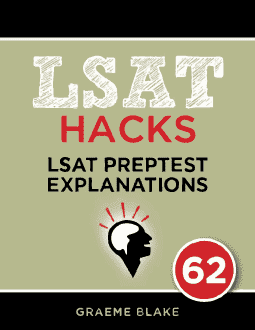QUESTION TEXT: Music professor: Because rap musicians can work alone…
QUESTION TYPE: Method of Reasoning
CONCLUSION: It is wrong to say that rap is individualistic and non-traditional.
REASONING: Rap musicians don't follow their individual desires; they meet public expectations. And the themes and styles of rap have become a type of tradition.
ANALYSIS: You should first look at the conclusion the student is disagreeing with. The professor's conclusion has two parts:
- Rap is individual.
- Rap isn't traditional.
The student offers evidence to disprove each point. The student does not contradict any of the professor's evidence. Instead, they bring up new facts that add context to the professor's argument.
___________
- The student didn't challenge either of the professor's premises. Instead, they offered us new evidence that directly contradicts the conclusion.
- CORRECT. The additional observations are evidence that provide context, showing the professor's conclusion to be wrong.
- The professor doesn't generalize from rap music to all music. I have no idea what this answer is referring to.
- The music student didn't do this.
Example of answer: Learning rap isn't formal in the same way an instrument is, but it's still formal in a different way. - The student didn't challenge the professor's evidence.
Example of answer: It's not true that rap musicians can work alone. They need sound technicians and backup singers.
Recap: The question begins with “Music professor: Because rap musicians”. It is a Method of Reasoning question. To practice more Method of Reasoning questions, have a look at the LSAT Questions by Type page.


Why is D not correct? It seems like the student is offering alternative explanations of phenomena the professor cites — individuality (rap is not so individualistic because it conforms to public preference) and tradition (uses bits of older songs).
Good question! D says “cites as evidence for his thesis”.
But individuality and nontradition weren’t evidence for the professor. They were his conclusion. D references them in the wrong way.
Why is B correct? Why are we assuming that the music professor did not take this into account account inhm his argument? Maybe he did, he just did not think it was good enough of a retort to go against his conclusion!
It’s possible the music professor did take the info into account, without mentioning them. B says the critic adds information which wasn’t *in the argument*. This question is only asking HOW the critic made their reply. The professor might well have a convincing reply to the critic, but that isn’t what we’re supposed to be assessing.
Note: This is an old comment but I wanted to clarify the point.